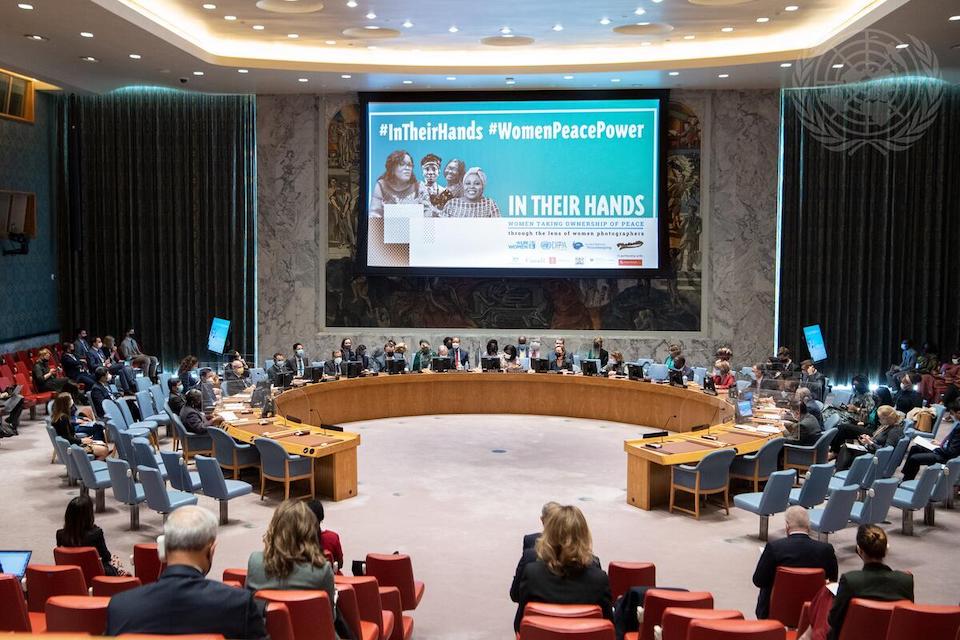Cooperation between the United Nations and the African Union is vital: Vicky Ford's statement
UK Minister for Africa Vicky Ford gave a statement at the United Nations Security Council open debate on cooperation with regional organisations.

Thank you, Mr President, and my thanks to our distinguished briefers.
Cooperation between the UN and the African Union is vital to achieving a safer, greener, healthier, more open and more resilient continent.
I would like to make 4 key points in this respect.
Firstly, Mr President, I want to underline the importance of collaboration to promote and consolidate democracy, human rights, good governance and the rule of law.
On Sudan the United Kingdom continues to be an advocate for democratic transition. I condemn in the strongest terms the coup by the Sudanese military this week, including arrests of civilian leaders and killing of protesters. The military’s acts represent a betrayal of the Sudanese people and their journey to democracy. I welcome the swift action of the AU Peace and Security Council to suspend Sudan. This demonstrates clear and firm African leadership, and I am pleased that the Security Council has also spoken with one voice today on this issue. Together, this sends a powerful message to the military, that they cannot unilaterally unpick the 2019 Constitutional Declaration. They cannot cherry-pick which civilians they will work with. This is simply not how democracy works.
Secondly, I want to emphasise the importance of UN-AU coordination in promoting political solutions to conflict. I commend the joint efforts to deliver this, especially across the Sahel region through the UNSC visit to Mali and Niger.
The situation in Northern Ethiopia is unacceptable. I am horrified by the humanitarian impacts. More than 5 million people in Tigray require urgent aid, but less than 10% of humanitarian needs are being met.
There are continuing credible reports of the abhorrent use of sexual violence as a weapon of war.
We are supporting life-saving efforts on the ground, and I reiterate our calls on all sides for an immediate ceasefire, urgent humanitarian access involving road as well as air corridors, and dialogue.
The AU signalled the desire to make progress through the appointment of AU Special Envoy Obasanjo to promote dialogue between the parties to the conflict in Tigray. We cannot wait for a ceasefire to address the humanitarian situation. We need to step these efforts up. It is absolutely vital that they yield results.
Thirdly, Mr President, let me emphasise the importance we attach to the AU’s role in peace operations.
I pay tribute to the efforts of those countries contributing police and troops to the African Union Mission to Somalia. We look forward to receiving the joint UN-AU proposal for an AU-led successor mission. This must be based on a model, which is supported by all key stakeholders, including the Somalis.
Finally, Mr President, I want to note the importance of the UN-AU partnership in tackling global challenges to Africa’s peace and stability, and working towards a more stable, prosperous future. On my recent visit to South Africa, Lesotho and Eswatini, I saw first-hand the impacts of the COVID-19 pandemic and climate change.
The UK is supporting African responses to these challenges. We are one of the leading donors to COVAX, which has helped 44 Advance Market Commitment African countries to access around 110 million vaccine doses. We will continue supporting this vital work.
We are also working with the AU to support its Green Recovery Action Plan, and to showcase African climate action at COP26 in Glasgow.
We are providing technical assistance for the African Continental Free Trade Area. The UK was the first non-African country to sign a partnership agreement. It offers huge opportunities –and when fully implemented could lead to a 33% increase in intra-African trade.
And we are supporting empowerment of African women and girls, including through education. Educating and empowering girls is essential if countries are to realise their full potential.
The Global Education Summit, which Prime Minister Johnson was honoured to co-host with Kenya in July, raised a record $4 billion, including a UK pledge of $600 million. That will enable 88 million more children to attend school by 2025, including many million girls in Africa.
The UN-AU partnership is a crucial platform for all these efforts. It will continue to have the UK’s full support.
Thank you, Mr President.